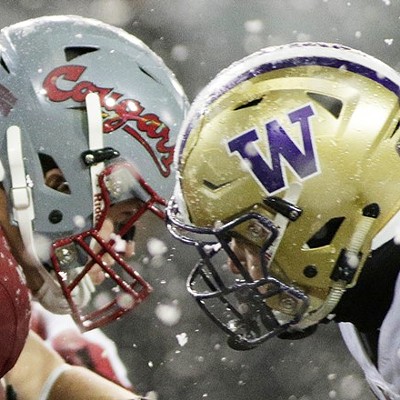My old office window looked out on the railroad. I got to watch train after train go by, brightened with graffiti applied who knows where. I’d see airplane fuselages, giant wind-farm rotors and boxcar after boxcar filled with who knows what. Of course, I’d also see open-top cars with a seam of black poking out — coal.
Coal miners have hit paydirt in Montana and Wyoming, and as America is weaning itself off the dirty fuel in favor of comparatively clean natural gas, they’ve been looking for new buyers. With China and other parts of Asia in their sights, they brainstormed how to ship way, way more coal overseas. They’ve planned three new port terminals in Washington and Oregon, and estimates put the train traffic to feed them at 34 long coal trains per day, running through Sandpoint and Spokane.
In Montana and Idaho, the silence of public officials has been deafening; fortunately, in Washington and Oregon, public pressure has recently prompted state and federal reviews of the plans. (British Columbia is taking a second look at expansion plans, too.) There are major health impacts to study, based on blowing coal dust, and increased traffic will require major infrastructure investments in cities and towns across the Northwest.
When I watched the trains, I imagined where those cars were going — and that’s where this plan becomes untenable. Just as we’re trying to cut our greenhouse gas emissions, we’d be sending China the raw materials to create those same emissions. It’s just plain ridiculous.
Reason, however, seems to be winning the day. First comes the recent BBC headline that China has finally had enough and plans to apply central state control to the use of coal. Why? Last January, a dark cloud literally descended on vast parts of China and just sat there for weeks, creating one of the biggest environmental crises in its history. Witnesses said you could not see 200 feet in front of you, and a recent study shows bad air is cutting the average Chinese lifespan by five years.
Basic math is working against the coal ports, too. Three years ago, when these plans were hatched, the price of a metric ton of coal was topping $140; today, that price is $74. Without profit, there will be no project.
Still, it’s no time to let up; our public officials — here, regionally and nationally — need to hear that we won’t put up with being exploited for a dying, dirty industry. Yes, we want jobs, but we’re not that desperate.
You can attend a public hearing on the plan to build a new coal-shipping terminal in Longview, Wash., at 5 pm, Wednesday, Sept. 25, at the Spokane Convention Center. For details, visit millenniumbulkeiswa.gov.





















